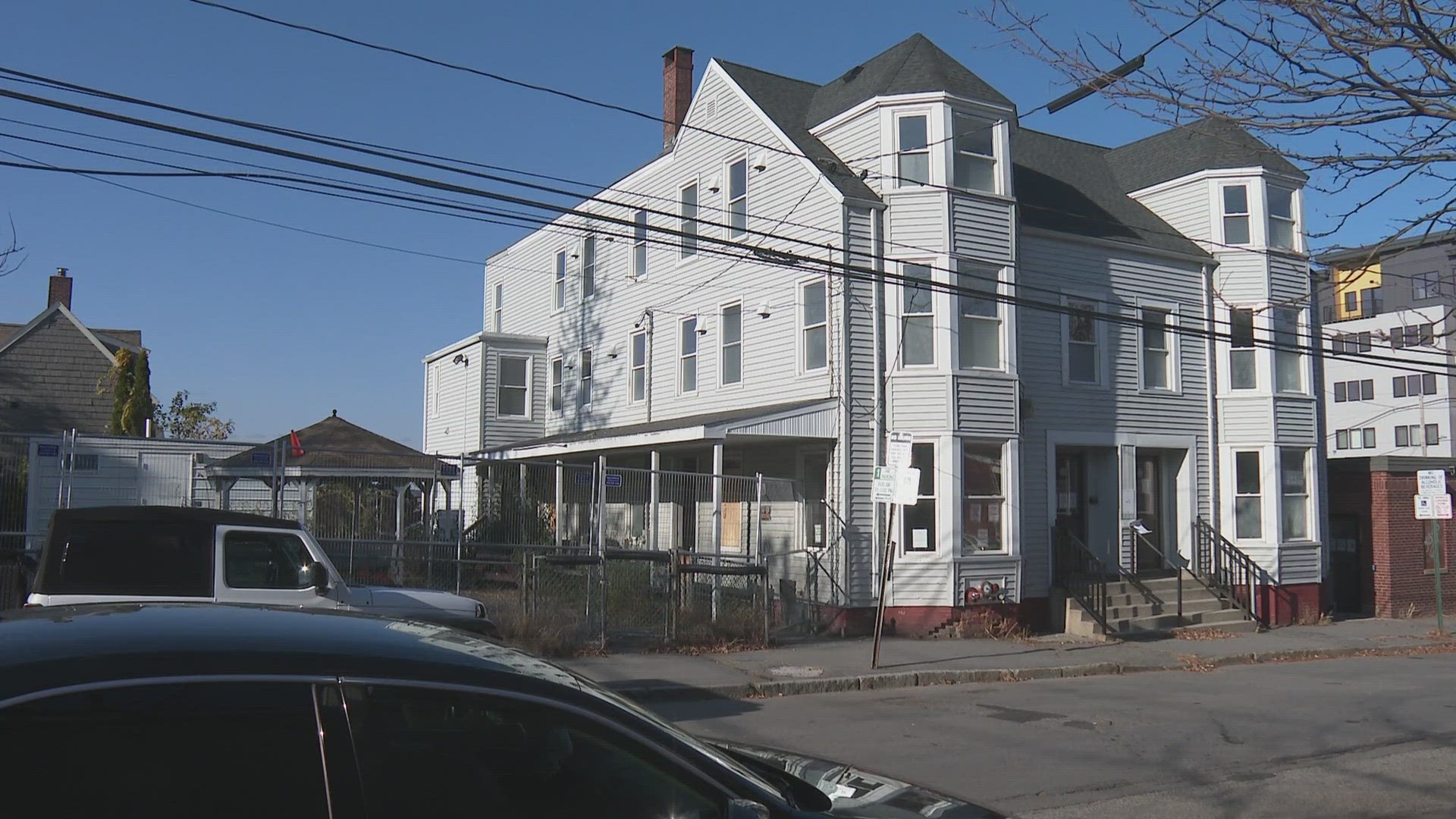PORTLAND, Maine — The former Oxford Street shelter is set to become Maine's fourth site-based Housing First property, according to Avesta Housing.
The non-profit's CEO, Rebecca Hatfield, said Monday that Avesta is under contract to purchase the City of Portland's former homeless shelter. She said the plan is to demolish it and construct 30 new units for people who are chronically homeless and suffering from substance use disorder.
They are targeting singles who have been experiencing homelessness and co-occurring substance use for years, similar to the other three site-based Housing First properties in Maine, all of which are in Portland: Logan Place, Florence House, and Huston Commons.
Hatfield said as long as the approval and funding processes go smoothly, construction will start in 2025, with a goal of completing the project in 16 to 18 months.
Preble Street Executive Director Mark Swann said the property will have at least two social workers on site at all times to help residents when they need it.
The funding for those staff comes from the Housing First Fund that was created as part of the budget in 2023. The program will get between $7 million and $8 million in funding each year from half of the state's real estate transfer tax revenues.
Avesta Housing built, owns, and maintains the buildings; Preble Street provides 24-hour support services to ensure that people who are making the transition to permanent independent housing will succeed. Portland Housing Authority issues project-based Section 8 vouchers that are attached to every unit.
The Department of Housing and Urban Development defines Housing First as an approach to quickly and successfully connect individuals and families experiencing homelessness to permanent housing without preconditions and barriers to entry, such as sobriety, treatment, or service participation requirements.
Hatfield and Swann said the location at the former city shelter is ideal for all people involved.
“It's right in our backyard. It makes a lot of sense, obviously because of the history, but also because of the access and proximity to other services, access to public transportation. It's a very good location," Hatfield said.
“This is it. This is the solution to chronic homelessness. It's not the only intervention that's needed, and it's not going to solve everything for everybody. But it's really, really important," Swann said. "It's the single most effective intervention that I've seen in my career for people who have been on the streets for years and even decades.”
Hatfield and Swann said the goal is to build more of these properties.

